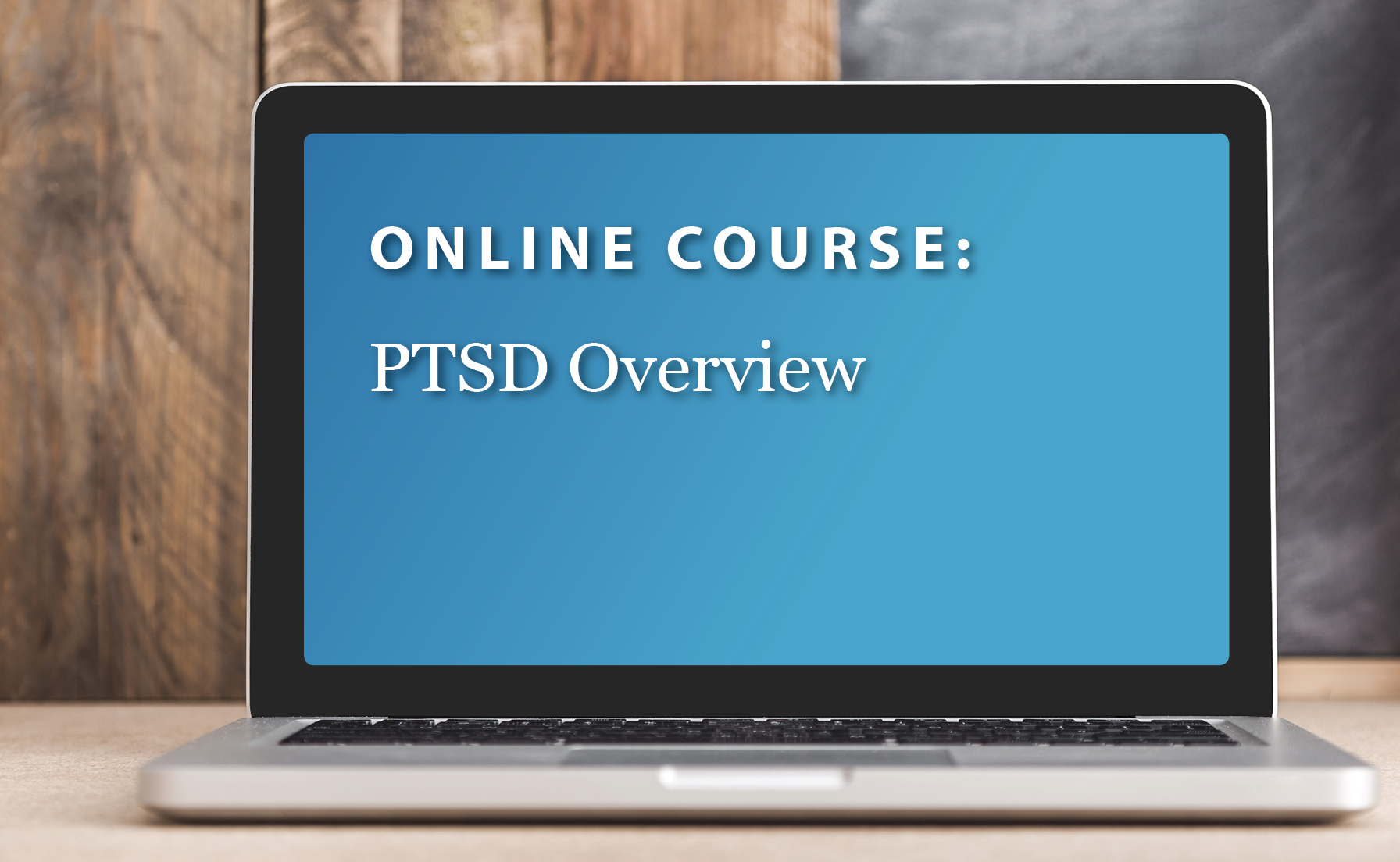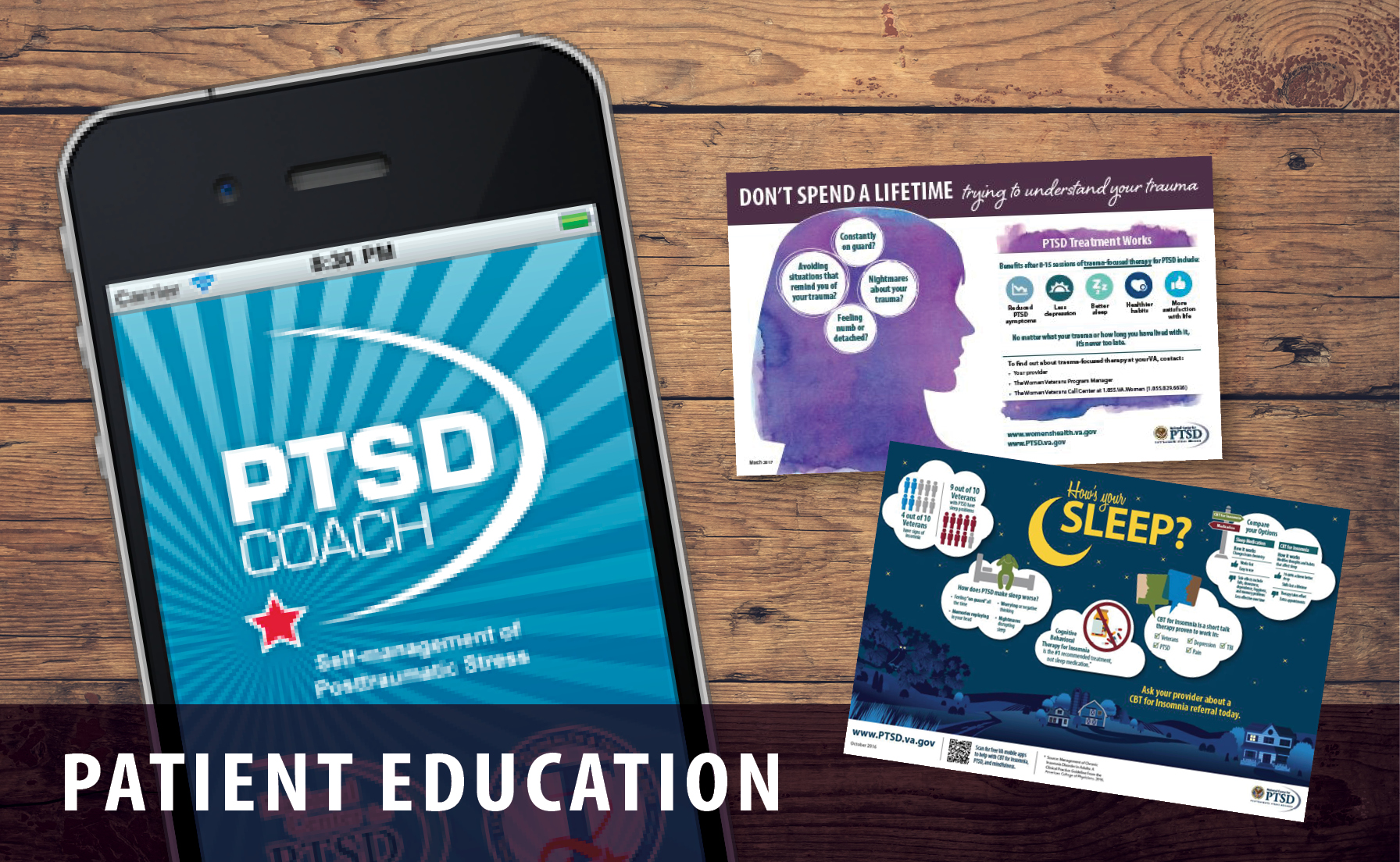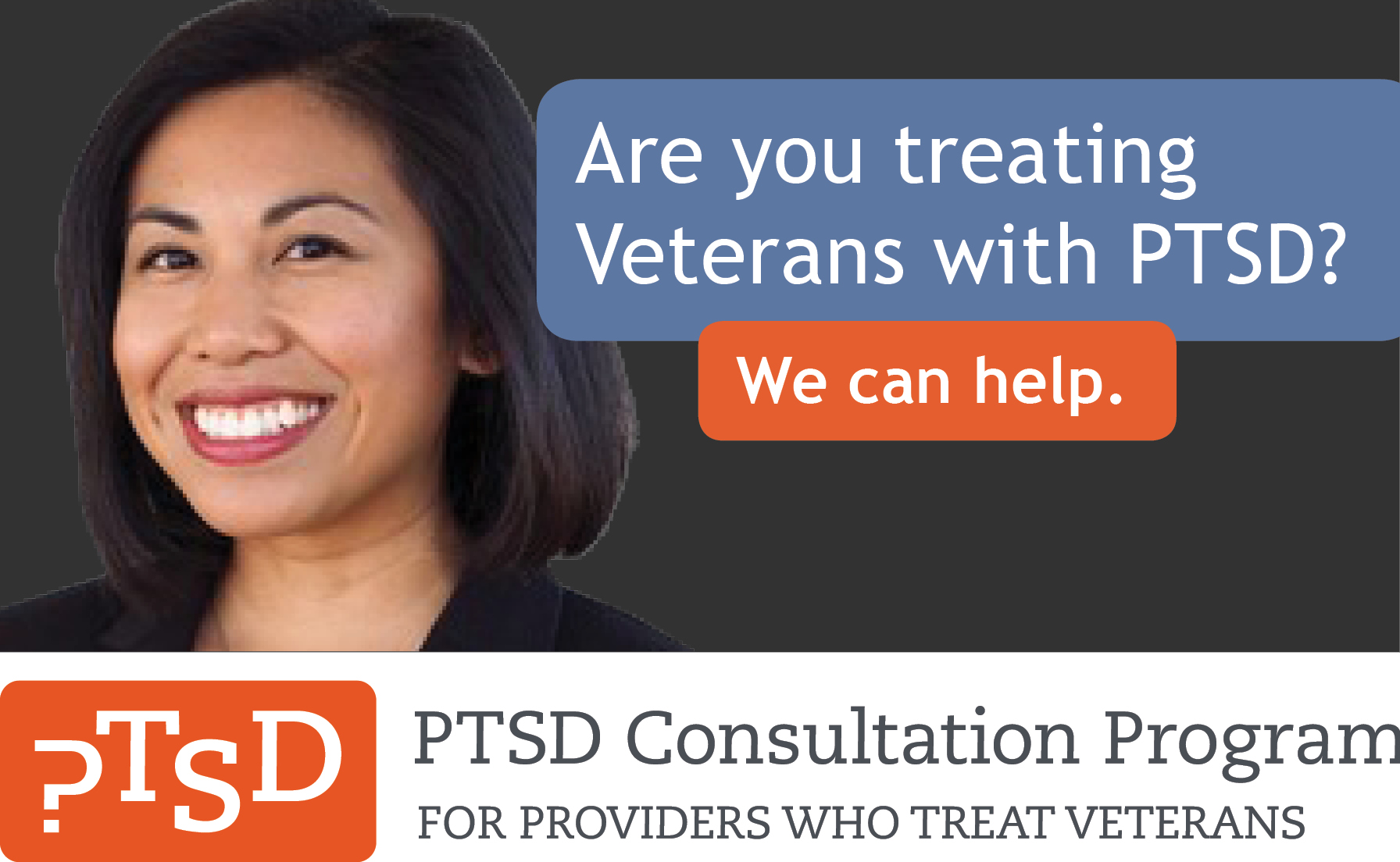Attention A T users. To access the menus on this page please perform the following steps.
1. Please switch auto forms mode to off.
2. Hit enter to expand a main menu option (Health, Benefits, etc).
3. To enter and activate the submenu links, hit the down arrow.
You will now be able to tab or arrow up or down through the submenu options to access/activate the submenu links.
Locator
Contact
Search
PTSD Essentials
PTSD Essentials
The articles below review key information about PTSD, including diagnostic criteria, subtypes and related diagnoses, epidemiology, and a historical overview.
- PTSD and DSM-5
Describes the DSM-5 diagnostic criteria for PTSD, which remain unchanged in DSM-5-TR, and includes an overview of revisions from DSM-IV. - Epidemiology and Impact of PTSD
Reviews key findings about PTSD prevalence among the U.S. general population and Veterans of different service eras. - Acute Stress Disorder
An overview of acute stress disorder, including: who is at risk, how is it treated, and how is it related to PTSD. - Dissociative Subtype of PTSD
Describes the dissociative subtype of PTSD included in DSM-5 including a review of the rationale and evidence for inclusion, diagnosis, and treatment considerations. - Complex PTSD: History and Definitions
Clarifies what complex PTSD (CPTSD) is and is not, how the definition has changed over time, and how it relates to PTSD. - PTSD History and Overview
The history of PTSD, the PTSD diagnosis, and the criteria needed to meet a diagnosis of PTSD. - Anniversary Reactions and Other Recurring Trauma Reminders
Discusses recurring trauma reminders, such as anniversary reactions or annual celebrations, and offers suggestions to support patient self-care and symptom management.
You May Also Be Interested In

PTSD 101: PTSD Overview
This PTSD 101 online course describes the DSM-5 diagnostic criteria, risk factors, and evidence-based treatments for PTSD.

























